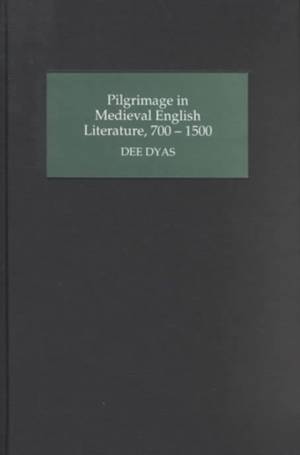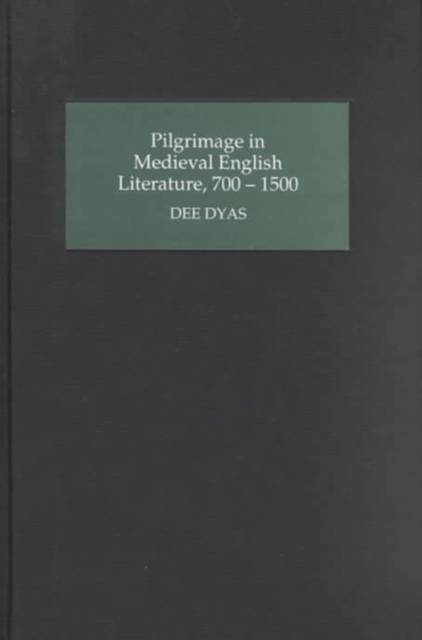
- Afhalen na 1 uur in een winkel met voorraad
- Gratis thuislevering in België vanaf € 30
- Ruim aanbod met 7 miljoen producten
- Afhalen na 1 uur in een winkel met voorraad
- Gratis thuislevering in België vanaf € 30
- Ruim aanbod met 7 miljoen producten
Zoeken
€ 209,45
+ 418 punten
Omschrijving
Pilgrims are so frequently encountered in the pages of Middle English literature that it is easy to take their presence, and their significance, for granted. The pilgrimage motif is all too frequently simply accepted as a 'given' of medieval spirituality, its presence noted but its meaning seldom analysed. This study therefore asks several fundamental but hitherto largely ignored questions. What exactly did pilgrimage mean to medieval writers? How well did various understandings of pilgrimage combine within medieval spirituality? Who were the true pilgrims - those who travelled to saints' shrines, those who withdrew into the cloister or the anchorite's cell, or those who simply walked the path of daily obedience? In answering these questions, this wide-ranging survey of the origins and development of the pilgrim motif examines the development of Christian pilgrimage through the Bible, the writings of the Fathers, the influences of classical pagan religion and the impulses of popular devotion. It then traces the ways in which the resulting multiple meanings of pilgrimage were incorporated into medieval spirituality and literature, offering fresh perspectives on Old English poetry and prose together with Middle English texts such a the 'Canterbury Tales', 'Piers Plowman', 'Pearl' and the 'Book of Margery Kempe'. Dr DEE DYAS is director of the Society for the Study of Medieval Christianity and Culture.
Specificaties
Betrokkenen
- Auteur(s):
- Uitgeverij:
Inhoud
- Aantal bladzijden:
- 296
- Taal:
- Engels
Eigenschappen
- Productcode (EAN):
- 9780859916233
- Verschijningsdatum:
- 3/11/2001
- Uitvoering:
- Hardcover
- Formaat:
- Genaaid
- Afmetingen:
- 135 mm x 296 mm
- Gewicht:
- 589 g

Alleen bij Standaard Boekhandel
+ 418 punten op je klantenkaart van Standaard Boekhandel
Beoordelingen
We publiceren alleen reviews die voldoen aan de voorwaarden voor reviews. Bekijk onze voorwaarden voor reviews.








